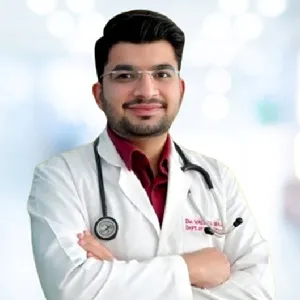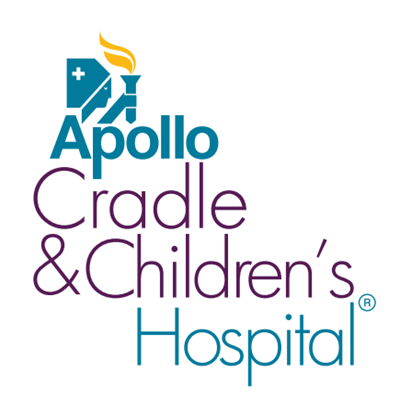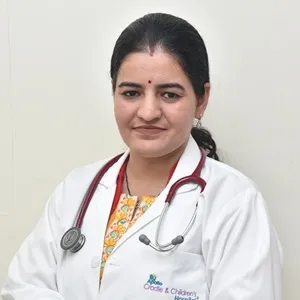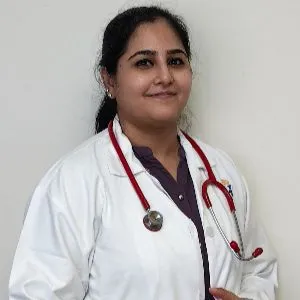Pneumonia in Children: Symptoms, Causes & Treatment | Parent Guide
October 16, 2025
Seeing your child come down with pneumonia can be worrying for any parent. Cough, fever, and fatigue often seem to appear suddenly, leaving you unsure how serious it might be or what to do next. Paediatricians commonly see pneumonia during the colder months, and while most children recover well with proper care, it’s important to recognise the signs early.
This article offers practical information to help you understand pneumonia in children, what may cause it, how it’s treated, and how you can best support your child’s recovery.
What Is Pneumonia?
Pneumonia is a serious lung infection that can be caused by bacteria, viruses, or sometimes fungi. In healthy lungs, tiny air sacs called alveoli fill with air each time we breathe. When pneumonia develops, these air sacs become inflamed and may fill with fluid or pus, making breathing painful and difficult. This often leads to coughing, fever, and fatigue.
The infection can affect one lung or both. When both are involved, it is known as double or bilateral pneumonia.
Despite being preventable and treatable in most cases, pneumonia remains the leading infectious cause of death among children worldwide, claiming the lives of more than 725,000 children under the age of five every year, including newborns, premature babies, and those with weakened immunity.
Common Causes of Pneumonia in Children
A variety of infectious pathogens can cause pneumonia in children. Viruses are the most common, including influenza (flu), respiratory syncytial virus (RSV), and parainfluenza viruses.
Bacteria are another frequent cause and often trigger more sudden and severe infections. The most common bacterial culprits include Streptococcus pneumoniae, Mycoplasma pneumoniae (walking pneumonia), Haemophilus influenzae, and Bordetella pertussis (whooping cough).
Fungi can also cause pneumonia in some cases, particularly in children with weakened immune systems or underlying health conditions. Environmental factors such as poor air quality, exposure to smoke, or crowded living conditions can further increase a child’s risk of developing pneumonia.
Is Pneumonia Contagious?
Pneumonia can be contagious, depending on its underlying cause. Viral and bacterial infections that lead to pneumonia may spread from person to person through droplets released when an infected individual coughs or sneezes. Transmission can also occur by touching surfaces contaminated with these germs and then touching the mouth or nose. In rare cases, certain types of pneumonia may be spread through blood or other bodily fluids.
Fungal pneumonia, however, is not contagious. These infections develop from environmental exposure, such as contact with spores in soil or dust, rather than from person-to-person transmission.
Key Symptoms of Pneumonia in Children
Common signs and symptoms of pneumonia in children include:
- Fever and chills
- Cough
- Rapid breathing (tachypnea)
- Grunting or wheezing while breathing
- Chest retractions (the chest or ribs pulling in with each breath)
- Vomiting
- Chest pain
- Abdominal pain
- Reduced activity or unusual tiredness
- Restlessness or fussiness
- Poor feeding in infants
- Loss of appetite in older children
- Pale skin
Types of Pneumonia
There are different types of pneumonia, depending on which pathogen caused it and how the infection was acquired.
- Community-Acquired Pneumonia (CAP):
This occurs when a child develops pneumonia outside a hospital. It is most often caused by bacteria (like Streptococcus pneumoniae) or viruses (such as influenza and RSV). Fungal causes are rare and usually affect children with weakened immune systems.
- Hospital-Acquired Pneumonia (HAP):
HAP develops while a child is in the hospital for another illness or procedure. It is often more serious than community-acquired pneumonia because it can be caused by antibiotic-resistant bacteria.
- Healthcare-Associated Pneumonia (HCAP):
This type can occur in children receiving care in long-term facilities or outpatient clinics. Like HAP, it is frequently linked to antibiotic-resistant bacteria.
- Ventilator-Associated Pneumonia (VAP):
VAP affects children on mechanical ventilation in intensive care. It can be caused by the same bacteria as community-acquired pneumonia, as well as resistant strains seen in hospital settings.
- Aspiration Pneumonia:
Aspiration pneumonia happens when food, liquids, or vomit enter the lungs accidentally. This can cause infection and inflammation if the lungs are unable to clear the material.
Risk Factors for Pneumonia in Children
Some factors that increase the risk of pneumonia in children are:
- Young age, especially under five years
- Premature birth with underdeveloped lungs
- Weakened immune system due to chronic illness or medical conditions
- Malnutrition or poor nutrition
- Chronic lung or heart conditions, including asthma and cystic fibrosis
- Exposure to secondhand smoke or polluted air
- Living in crowded or unsanitary conditions
- Incomplete or missed vaccinations against pneumonia-causing pathogens
How Is Pneumonia Diagnosed in Children?
Doctors diagnose pneumonia in children by starting with a careful physical examination. They check the child’s breathing, overall appearance, and vital signs. Using a stethoscope, they listen for unusual lung sounds, such as wheezing or crackling. A chest X-ray may also be done to confirm the diagnosis and assess the extent of lung involvement.
How Pneumonia Is Treated in Children
Treatment for pneumonia in children depends on what causes the infection and how severe it is. Sometimes the exact cause isn’t clear, so doctors focus on helping the child breathe more easily and preventing the illness from worsening.
Common treatments include:
- Antibiotics:
These are used when bacteria are causing the infection. They don’t work for viruses, but may be prescribed if a bacterial infection occurs alongside a viral one.
- Antifungal medications:
These are given when pneumonia is caused by a fungal infection, usually in children with weakened immune systems.
- Antiviral medicines:
Most viral pneumonias improve on their own, but antivirals can sometimes be used to reduce how long the illness lasts or how severe it becomes.
- Oxygen therapy:
If a child is struggling to get enough oxygen, extra oxygen can be given through a mask or nasal tube.
- IV fluids:
Fluids given directly into a vein help prevent or treat dehydration, especially if the child is having trouble drinking enough.
- Removing fluid from the chest:
If excess fluid builds up around the lungs, a doctor may drain it with a small tube or, in serious cases, surgery.
How Long Does Pneumonia Last?
With proper treatment, most cases of bacterial pneumonia in children improve within one to two weeks. Pneumonia caused by viruses, as well as “walking” pneumonia, often takes longer to resolve, sometimes lasting four to six weeks before the child fully recovers.
Pneumonia Prevention
Pneumonia can often be prevented by taking protective measures, especially for newborns and young children. These include:
- Ensuring breastfeeding for newborns and infants to provide natural immunity.
- Keeping children up to date with vaccines.
- Providing good nutrition to support a strong immune system.
- Ensuring access to clean water and safe sanitation.
- Limiting exposure to air pollution and secondhand smoke.
- Encouraging regular handwashing with soap to reduce the spread of germs.
- Promoting healthy living environments by avoiding overcrowded and unsanitary conditions.
Certain vaccines are highly effective in preventing pneumonia. The pneumococcal vaccine (PCV) protects against the most common bacterial cause of pneumonia. Other routine vaccines, including Diphtheria-Tetanus-Pertussis (DTP), measles-containing vaccines, and the Hib (Haemophilus influenzae type B) vaccine, also help protect children from infections that can lead to pneumonia.
How Can Parents Help
Parents can play an important role in keeping their children healthy and lowering the risk of pneumonia disease. Making sure children are up to date on vaccines, eat well, and are breastfed when possible helps strengthen their natural defences. Good hygiene (such as washing hands regularly) and avoiding exposure to smoke or polluted air also reduce the chance of infection.
If a child shows signs of pneumonia, like a persistent cough, trouble breathing, or a high fever, seeking medical care quickly is essential. Parents can support recovery by following the doctor’s guidance, keeping the child hydrated, allowing plenty of rest, and watching for any changes in symptoms.
Careful attention and immediate action can make a real difference in helping children recover fully and stay healthy.
Treatment depends on the cause. Bacterial pneumonia is treated with antibiotics, fungal pneumonia with antifungals, and viral pneumonia often resolves on its own. Supportive care, such as fluids, rest, and oxygen if needed, is also important.
Early signs include persistent cough, rapid or difficult breathing, fever, chills, chest or belly pain, fatigue, and, in infants, poor feeding. Wheezing or grunting sounds while breathing may also indicate pneumonia.
Follow the doctor’s advice carefully. Ensure the child gets plenty of rest, stays hydrated, and completes prescribed medications. Monitor breathing and temperature, and seek medical care if symptoms worsen or oxygen levels drop.
Pneumonia typically progresses in four stages: congestion (fluid in lungs), red hepatisation (inflammation and red blood cells in alveoli), grey hepatisation (white blood cells replace red cells), and resolution (lungs clear fluid and heal).
Most children fully recover with timely treatment. Recovery time depends on the severity and cause of pneumonia and typically ranges from one to six weeks.
Our Doctors

DR. RICHA KAPOOR
BOT, MOT, C/SI(USC.U...
| Experience | : | 21 Years |
|---|---|---|
| Speciality | : | Paediatrics... | Location | : | Gurugram |
| Timings | : | Thur : 1:00 PM to 05... |

DR. GAYATHRI DEVI N
MBBS, MD(Pead)...
| Experience | : | 16+ Years |
|---|---|---|
| Speciality | : | Paediatrics... | Location | : | HSR layout 2nd Sector |
| Timings | : | Mon to Sat : 04:00 P... |

DR. VATSAL BAJAJ
MBBS, MD (Pediatrics...
| Experience | : | 6 Years |
|---|---|---|
| Speciality | : | Paediatrics... | Location | : | Sector-82 |
| Timings | : | Mon to Fri : 3:00 PM... |

DR. ALEKYA SINGAPORE
MBBS, DDVL, Fellowsh...
| Experience | : | 10+ Years |
|---|---|---|
| Speciality | : | Paediatrics... | Location | : | Jubilee Hills |
| Timings | : | Mon - Sat : 09:00 AM... |

DR. PRAKASH SELVAPERUMAL
MBBS, MD Paediatrics...
| Experience | : | 15+ Years |
|---|---|---|
| Speciality | : | Paediatrics... | Location | : | Karapakkam |
| Timings | : | Mon, Wed, Thurs, Fri... |

DR. MURALI GOPAL
MBBS, DCH(UK), MRCPC...
| Experience | : | 25+ Years |
|---|---|---|
| Speciality | : | Paediatrics... | Location | : | Karapakkam |
| Timings | : | Mon - Sat : 9:30 AM ... |

DR. HARISH V S
MBBS, DCH(UK), MRCPC...
| Experience | : | 25+ Years |
|---|---|---|
| Speciality | : | Paediatrics... | Location | : | Karapakkam |
| Timings | : | Mon - Sat : 9:30 AM ... |

DR. SONAL TEJPAL
MBBS, MD (Paediatric...
| Experience | : | 6 Years |
|---|---|---|
| Speciality | : | Paediatrics... | Location | : | Abadi Court Road |
| Timings | : | Mon to Sat : 10:00 A... |

DR. SHRUTI K
MBBS, MD, NICU Fello...
| Experience | : | 15+ Years |
|---|---|---|
| Speciality | : | Paediatrics... | Location | : | Karapakkam |
| Timings | : | Mon to Sat : 10:00 A... |
